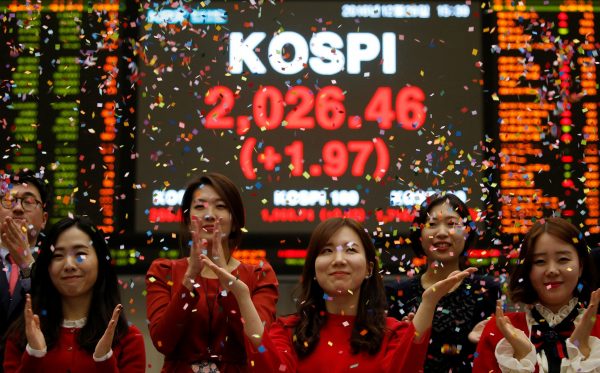Three main reasons explain why successive South Korean governments have been supportive of regional financial governance. To begin with, the development of domestic financial markets means that South Korea is vulnerable to future crises. Regional liquidity mechanisms could thus be handy. Furthermore, Seoul sees itself as a middle power with special influence at the regional level. As a result, it has been developing the necessary capabilities to act as such. Last but not least, the Asian financial crisis taught South Korean policymakers that a crisis can quickly spread throughout the region. This has driven an interest in supporting regional governance to prevent such a crisis from being repeated.
South Korea’s capital-intensive economy — with sectors such as electronics, biotech and robotics becoming ever more important — needs better access to global capital markets. Supporting innovative start-ups that have difficulty accessing bank loans further exacerbates this need. It is no surprise that successive South Korean governments have been implementing policies receptive towards foreign capital markets.
But a greater role for financial markets in the domestic economy comes with an associated risk of financial crisis. Regional financial governance can help to mitigate this risk. Most notably, the Chiang Mai Initiative Multilateralisation (CMIM) can provide liquidity to crisis-hit countries and can even be activated to prevent financial disruption through its precautionary line.
Through the CMIM, Seoul currently has access to up to US$38.4 billion to address any short-term liquidity shortages (though only US$11.5 billion is available without an IMF standby package). More importantly for Seoul, CMIM and the ASEAN+3 Macroeconomic Research Office (AMRO) can help to prevent a crisis from beginning in Southeast Asia and spreading to South Korea — in other words, regional financial governance can help to prevent a repeat of the 1997 Asian financial crisis.
Ever since the Asian financial crisis, South Korea has been a long-standing enthusiast of financial regionalism. Successive South Korean governments have seen regional financial governance as a means to prevent a loss of confidence in a region where internal trade and investment flows continue to grow. Seoul is also keenly aware that regional financial governance is cost-effective, as it allows for the pooling of financial resources across the region — especially from China and Japan. From a South Korean perspective, excess Chinese and Japanese holdings can be put to good use in preventing a second East Asian crisis.
With ASEAN centrality wavering and China and Japan not always enthusiastic about regional mechanisms, South Korea’s incessant support is particularly relevant. It is at the regional level that South Korea’s middle power projection has been strongest. Seoul was one of the driving diplomatic forces behind CMIM, playing an instrumental role in the equitable allocation of contribution and borrowing ratios as well as the distribution of voting ratios. As co-chair of the forum in which the CMIM voting system was agreed, South Korea successfully steered the discussion towards a supermajority no-veto arrangement.
The importance of South Korea taking a leading role in ASEAN+3 financial governance cannot be understated. Seoul has played and can continue to play the role of balancer and honest broker between Beijing and Tokyo. South Korea is a neutral actor with no geopolitical ambitions across Southeast Asia, which allows Seoul to present itself as a mediator between differing views about regional governance.
In addition, South Korea can act as a bridge between developed and developing countries. It embodies an economic development model in a way that Japan (which developed much earlier) and China (a much bigger economy with the largest population in the world) cannot. What is more, South Korea was directly hit by the East Asian financial crisis. The country’s policymakers can draw on their institutional memory alongside their counterparts in developing countries to work on how ASEAN+3 financial governance mechanisms can serve to mitigate the potential negative effects of capital market liberalisation.
At a time when memories of the global financial crisis are fading away (leaving some to question the relevance of regional financial governance) South Korea can act as a leading force to underpin multilateralism in East Asia. To do so, it needs to build on successes such as the creation of AMRO and CMIM and demonstrate its role in crisis prevention and resolution.
This does not necessarily entail providing more financial resources than currently pledged. But it does involve continuing to provide unwavering diplomatic support for regional mechanisms. As a country that has ever-growing capital markets, sees itself as a middle power and has been an unashamed supporter of financial regionalism, South Korea can and should lead regional financial governance.
Ramon Pacheco Pardo is a Senior Lecturer in International Relations at King’s College London and Co-Director of the London Asia Pacific Centre for Social Science.
This piece is adapted from a longer essay published in the Korea Economic Institute of America’s Academic Paper Series. The full-length essay can be viewed here.

